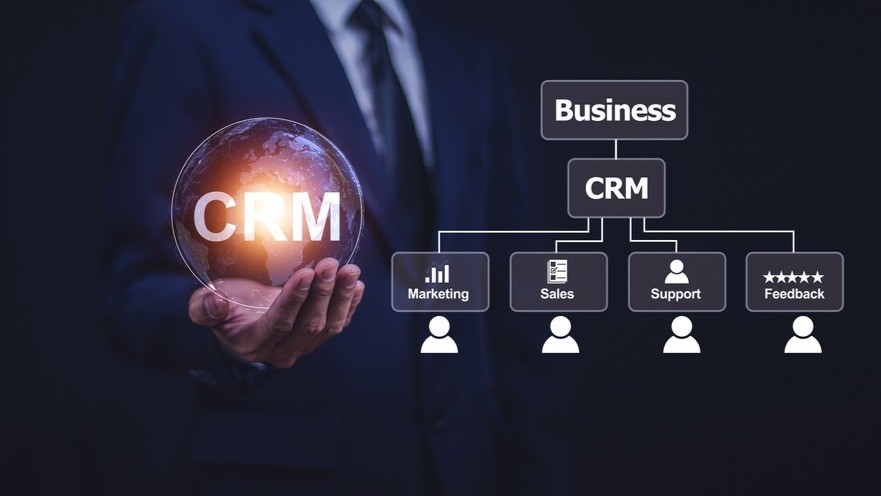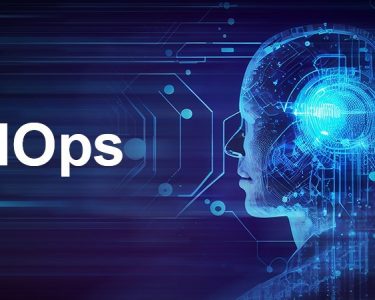In a world driven by data and customer-centric approaches, mastering the art of personalized engagement is no longer just a bonus but a necessity. But how do you manage this on a large scale without compromising quality or efficiency? The answer lies in the convergence of AI in CRM. This groundbreaking synergy is reshaping the way businesses interact with their customers, offering unprecedented levels of customization. A report suggests that the market for generative AI in CRM will grow to $119.9 million by 2032.

In this blog, we will explore the game-changing impact of an AI-powered CRM, diving deep into how these technologies are revolutionizing customer engagement and creating opportunities for personalization at scale.
The Significance of Customer Engagement in CRM
Customer engagement has long been a Customer Relationship Management (CRM) cornerstone. However, the advent of AI in CRM has fundamentally changed how businesses interact with their clients. Here are some key transformations:
Data-Driven Insights: AI-powered CRM systems can analyze massive volumes of data to provide real-time insights into customer behavior, preferences, and needs. This allows for more personalized interactions at an unprecedented scale.
Efficiency and Automation: The use of AI for CRM is not just about data analysis. It automates routine tasks and streamlines communication, enabling human teams to focus on more complex customer needs.
Predictive Modeling: AI in CRM goes further by offering predictive models of future customer behavior. This enables companies to proactively address issues or identify upsell opportunities.
AI has not only transformed CRM into a more powerful tool but has also elevated the level of customer engagement, leading to improved customer satisfaction and robust business performance.
Benefits of AI-Powered Personalization at Scale

The integration of AI in CRM has revolutionized the way businesses can offer personalized experiences, bringing a host of benefits that range from enhanced product recommendations to significantly higher ROI. Here are the top benefits that the integration of AI in CRM brings to the table, transforming the landscape of customer engagement and business operations.
Enhanced Product Recommendations
With AI-powered CRM systems, businesses can significantly improve the quality and relevance of their product recommendations. These intelligent systems utilize machine learning algorithms to analyze a wide range of data points, including customer browsing history, past purchases, and even location data. The result is a nuanced understanding of each customer’s preferences and needs.
What makes AI for CRM particularly impactful in this area is the ability to learn from ongoing customer interactions. As more data is gathered, the AI models become increasingly sophisticated, allowing for real-time adjustments to product recommendations. This level of personalization would be challenging, if not impossible, to achieve manually or through traditional CRM software.
The use of AI in CRM for enhancing product recommendations has an array of benefits. For businesses, it leads to higher sales, better customer retention, and the opportunity for effective upselling and cross-selling. For customers, it means a more personalized shopping experience, where the products they see are carefully selected to match their needs and preferences.
Increased Conversion Rates
When it comes to boosting conversion rates, AI-powered CRM systems stand head and shoulders above traditional methods. In contrast to static rule-based systems, AI algorithms can process and analyze massive volumes of data in real time, providing immediate insights that can be acted upon.
AI for CRM takes into account various factors like customer browsing behavior, historical data, and real-time interactions to deliver highly targeted incentives, promotions, or content. For instance, if a user has been browsing a particular category of products but has not made a purchase, the AI can trigger a personalized promotion related to those products, nudging the customer toward conversion.
The use of AI in CRM isn’t merely a trend; it’s a fundamental shift in how businesses approach conversion optimization. This technology allows companies to deliver tailored experiences at scale, increasing both the likelihood and the value of conversions. Overall, the application of AI in CRM for increasing conversion rates has proven to significantly improve performance metrics and contribute to long-term business success.
Reduced Customer Churn
One of the most critical advantages of the application of AI in CRM is the potential to substantially reduce customer churn. By using machine learning algorithms, AI-powered CRM systems can analyze a myriad of factors that contribute to customer attrition.
These can range from customer service interactions and purchase histories to more subtle indicators like changes in engagement levels with marketing emails or frequency of website visits.
This analysis allows the mobile CRM system to identify customers who are at high risk of churning before they actually do so. Early intervention strategies, such as targeted promotions, personalized messages, or customer service outreach, can then be applied to retain these at-risk customers. The AI can even recommend the most effective retention strategy based on historical data and predictive modeling.
The application of AI in CRM equips businesses with the insights and tools they need to proactively address customer churn, thereby increasing customer lifetime value and sustaining revenue streams.
Improved Content Discovery for Customers
The AI-based CRM systems have opened new avenues for enhanced content discovery, significantly improving customer engagement and satisfaction. These intelligent platforms employ machine learning algorithms to analyze a customer’s behavior, interactions, and preferences.
With this data, the system can curate and present content that is most relevant to the individual user, whether that’s articles, product recommendations, or video content.
The value of this feature is twofold. For customers, it means a more personalized and streamlined experience where they can effortlessly find content that resonates with them. For businesses, it means higher engagement rates, more time spent on the platform, and, ultimately, increased revenue opportunities.
The integration of AI-based CRM systems not only optimizes the user experience by simplifying content discovery but also holds significant benefits for businesses aiming to deepen customer engagement and reduce bounce rates.
Cost Savings
Implementing an AI-assisted CRM system results in significant cost savings across various aspects of a business. Automation features reduce the need for manual labor in tasks like data entry and customer segmentation, cutting down labor costs while also minimizing human error.
The predictive analytics capabilities of these platforms forecast customer behavior and sales trends, allowing businesses to optimize inventory, marketing spending, and other resources. This helps in preventing wasteful expenditure.
Enhanced customer engagement features contribute to cost savings as well. Better targeting through machine learning algorithms leads to more effective marketing campaigns, optimizing the budget allocated for customer acquisition and retention.
Personalized customer experiences also help in retaining customers for a longer period, thereby reducing the costs associated with high churn rates.
The adoption of AI-driven CRM makes a compelling case for increased cost-effectiveness, enabling businesses to achieve better results with fewer resources.
Competitive Advantage
In today’s highly competitive marketplace, the AI benefits in CRM offer companies a distinct edge. Utilizing artificial intelligence within a CRM system allows for a deeper, more nuanced understanding of customer behavior, preferences, and needs.
This knowledge enables businesses to deliver highly personalized experiences that competitors using traditional CRM systems simply can’t match.
Advanced data analytics and machine learning algorithms allow companies to identify emerging market trends and customer preferences ahead of the competition. This timely insight enables faster, more informed decision-making, whether it’s launching a new product or tweaking a marketing campaign for maximum impact.
Moreover, the automation features in AI-enabled CRM systems free up valuable human resources, allowing team members to focus on strategic activities rather than repetitive tasks. This operational efficiency adds another layer of competitive advantage.
The AI benefits in CRM are not just incremental; they can be a game-changer in helping businesses outperform competitors.
Higher ROI
The integration of generative AI for CRM has a direct impact on achieving a higher Return on Investment (ROI) for businesses. The machine learning algorithms within a generative AI setup can go beyond mere analytics, actively suggesting and even generating optimal customer engagement strategies.
For example, the AI can generate personalized email campaigns or dynamically adjust pricing models to maximize profitability, taking into account real-time data and predictive analytics.
Not only does this result in more effective targeting and personalization, but it also streamlines operational efficiency. With manual processes automated and more strategic decision-making, businesses can achieve more with less. This increase in both top-line revenue and operational efficiency leads to a much higher ROI, justifying the initial investment in AI technology.
AI in CRM serves as a force multiplier, enabling businesses to optimize their customer engagement strategies in a way that directly contributes to a more robust bottom line.
Enhanced Customer Loyalty
Customer loyalty is a prized asset for any business, and the use of AI-powered CRM systems elevates this asset to new heights. These advanced CRM systems use machine learning to analyze customer behavior, preferences, and previous interactions with the brand, allowing for more personalized and relevant experiences. This kind of individual attention through AI CRM fosters a deeper connection between the customer and the brand, significantly enhancing customer loyalty.
The role of AI for CRM isn’t just limited to analytics; it also encompasses predictive modeling. This enables businesses to anticipate customer needs and address them proactively, further cementing the relationship. Whether it’s recommending products or offering timely customer support, AI in CRM solutions helps to go the extra mile in serving customers.
The end result is a circle of trust and value between the customer and the business, solidifying a long-term relationship that’s profitable for both parties. With this level of personalized engagement, customer loyalty isn’t just maintained; it’s continually strengthened.
Business-Specific AI Use Cases in CRM
AI in CRM offers diverse applications tailored to various business functions. It enhances customer interactions, streamlines operations, and boosts overall efficiency by automating tasks, providing deep insights, and delivering personalized experiences. From optimizing sales and marketing efforts to improving customer service and retention, AI transforms how businesses engage with their customers and manage their CRM systems.
Sales
AI optimizes sales activities by refining lead scoring and forecasting. By evaluating historical data and customer interactions, AI helps prioritize leads with the highest conversion potential, allowing sales teams to focus on the most promising opportunities. Additionally, AI-driven sales forecasting predicts future trends, aiding businesses in strategic planning and resource management.
Marketing
AI transforms marketing efforts by enabling highly personalized campaigns and precise customer segmentation. AI-powered CRM systems analyze customer data to create tailored marketing messages and offers, boosting engagement and conversion rates. Advanced segmentation also allows marketers to develop targeted strategies for different customer groups, enhancing overall campaign effectiveness.
Customer Service
AI enhances customer service through intelligent chatbots and sentiment analysis. Chatbots handle routine inquiries and provide immediate support, freeing human agents to address more complex issues and improving overall response times. Sentiment analysis tools assess customer feedback and interactions to identify emotional tones, enabling businesses to address concerns proactively and improve service quality.
Operations
AI enhances operational efficiency through automated data entry and workflow management. By automating routine data tasks, AI reduces manual errors and administrative workload, ensuring that information remains accurate and current. Workflow automation also streamlines repetitive processes, allowing teams to concentrate on more strategic and impactful activities.
IT Management
AI supports IT management by automating routine tasks and strengthening system security. AI-driven tools handle functions like software updates and system monitoring, easing the workload on IT teams. Additionally, AI identifies and mitigates potential security threats by analyzing patterns and anomalies, thus reinforcing IT infrastructure and safeguarding against cyber threats.
Ethical Considerations in AI-Powered Personalization
While AI-powered personalization brings a host of advantages for customer engagement and business efficiency, it’s crucial to be aware of the ethical implications that come with it. Here are the top ethical considerations that organizations should rigorously examine and address when deploying AI-driven personalization features in their CRM systems.

Privacy Concerns
One of the most significant ethical issues in using AI-powered CRM systems is the matter of privacy. These platforms often require extensive data collection to function effectively, gathering information from customer interactions, preferences, and behaviors.
While this data enables highly personalized experiences, it also poses a risk to individual privacy. Businesses must ensure that they have clear and transparent data collection and usage policies to maintain customer trust.
Hence, the implementation of AI for CRM should adhere to strict data privacy regulations such as GDPR, CCPA, or other relevant local laws. Companies need to adopt robust encryption methods and secure data storage solutions to safeguard customer information.
Bias and Fairness
Another critical ethical consideration is the potential for bias within AI-powered CRM systems. Machine learning algorithms learn from existing data, and if that data contains biases, the AI will inevitably replicate them. This could lead to unfair or discriminatory treatment of certain customer groups.
Businesses should continuously monitor and update their AI models to ensure that they are as fair and unbiased as possible.
For a bright future of AI in CRM, it’s vital that companies invest in developing algorithms that are not just intelligent but also ethical. This includes incorporating fairness metrics and conducting regular audits to identify and rectify any biases.
Transparency
Transparency is a cornerstone of ethical AI in CRM implementations. Customers have a right to know how their data is being used, especially when AI algorithms are making decisions that affect them. Whether it’s recommending a product or customizing an offer, the processes behind these decisions need to be transparent and understandable.
Businesses should provide clear explanations for how AI and CRM operates together, what data it uses, and how decisions are made. Offering a “transparent AI” feature within the CRM can also allow customers to understand why certain recommendations or decisions were made, bolstering trust and ethical integrity.
Our CRM capabilities coupled with our
Artificial Intelligence in CRM Examples
The integration of artificial intelligence in Customer Relationship Management (CRM) systems has been a game-changing development across various industries. These advancements offer real-world benefits, as demonstrated by numerous artificial intelligence in CRM examples.
One of the most well-known CRM AI use cases is Salesforce’s Einstein GPT. This generative AI CRM enhances the capabilities of the CRM platform significantly. It performs over 1 trillion predictive analyses each week and continually refines its understanding from real-time data. Einstein GPT can also integrate with platforms like OpenAI, providing businesses with robust tools for improving their consumer engagement strategies.
Another compelling example comes from IBM Consulting’s partnership with Bouygues Telecom. The mobile phone company initially had difficulties gaining comprehensive insights from its CRM system. IBM utilized generative AI to optimize call center operations, offering automatic call summarization and topic extraction.
This intelligent addition updated the CRM with more precise and actionable insights, leading to savings of over $5 million and a 30% reduction in call operations, making it one of the most effective CRM AI use cases.
Even specialized industries are adopting AI in CRM systems. Northrop & Johnson, a leading superyacht brokerage company, employed a CRM solution built on Microsoft’s Dynamics 365. The solution offers AI-powered functionalities such as behavioral data analysis, customer segmentation, lead scoring, and brand affinity assessment. The implementation led to targeted marketing efforts that boosted conversion rates and reduced days on the market by 20%.
Kantar, a London-based analytics and brand consulting firm, automated its CRM operations using a bot powered by SAP Conversational AI. This led to faster query resolution and decreased call center costs. The AI-enabled system managed to reduce inbound calls by 10%, enhancing both user satisfaction and operational efficiency.
These artificial intelligence in CRM examples highlight the expansive potential and versatility of AI technologies in creating and enhancing CRM platforms. Whether it’s operational efficiencies, advanced analytics, or automated customer interactions, AI is making an immediate impact on how businesses engage with their customers.
Final Thought:
In the realm of customer engagement, AI-powered CRM is no longer a luxury but a necessity. It’s the key to unlocking personalized experiences, boosting efficiency, and driving long-term customer loyalty. By harnessing the power of AI, businesses can transform their CRM systems into powerful tools that not only understand their customers but anticipate their needs. So, embrace the future of CRM, powered by AI, and watch your business soar to new heights of success.





